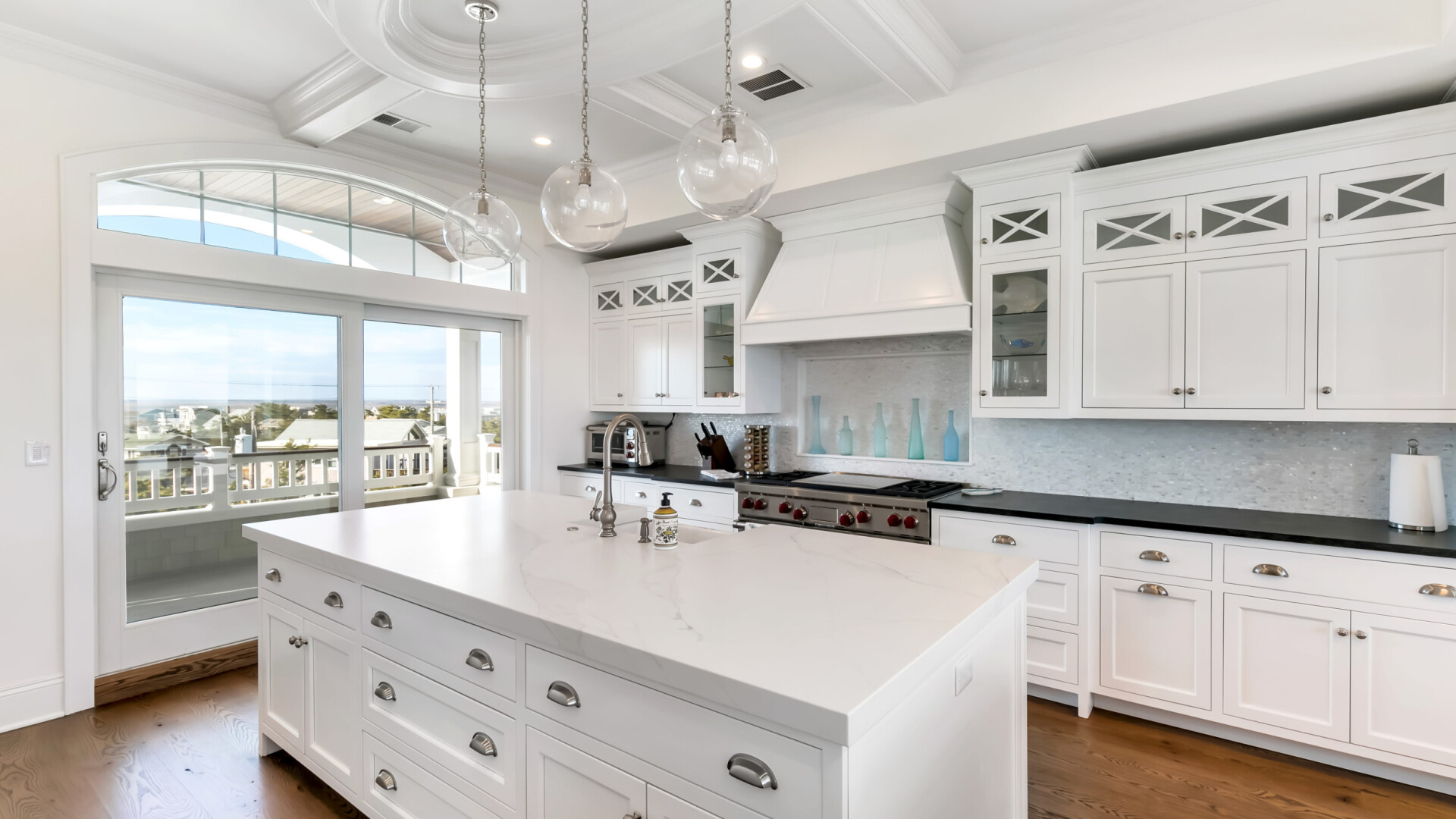Renovating a kitchen is more than just upgrading appliances and changing countertops; it’s about transforming a functional space into the heart of your home. Kitchen remodeling holds immense value, not just in terms of enhancing your living experience but also in boosting the overall value of your property. Let’s delve into why kitchen remodeling adds significant value to your home.
1. Introduction: Understanding the importance of kitchen remodeling
Your kitchen is where memories are made, meals are shared, and conversations flow freely. It’s a hub of activity, making it one of the most crucial areas of your home. A well-designed kitchen not only improves functionality but also elevates the aesthetics of your living space.
2. Assessing the current state: Is it time for a kitchen renovation?
Before embarking on a remodeling journey, it’s essential to evaluate the current state of your kitchen. Are the cabinets outdated? Is the layout inconvenient? Assessing these factors will help determine whether it’s time for a renovation.
3. Budgeting for your kitchen remodeling project
Setting a realistic budget is paramount when undertaking a kitchen remodel. Consider factors such as materials, labor costs, and unexpected expenses to ensure that your project stays within financial boundaries.
4. Design considerations: Choosing the right layout and style
The design of your kitchen sets the tone for the entire space. Whether you prefer a modern, minimalist look or a cozy, traditional ambiance, selecting the right layout and style is crucial in achieving your desired aesthetic.
5. Updating appliances and fixtures: Enhancing functionality and aesthetics
Upgrading appliances and fixtures not only enhances the visual appeal of your kitchen but also improves functionality and energy efficiency. From sleek refrigerators to smart faucets, investing in modern amenities can significantly elevate your cooking experience.
6. Maximizing space and storage solutions
Efficient use of space is essential in any kitchen. Incorporating clever storage solutions such as pull-out pantry shelves and overhead cabinets can help maximize storage capacity while keeping your kitchen organized and clutter-free.
7. Flooring options: Finding the perfect balance between style and durability
Choosing the right flooring is essential in achieving a cohesive look in your kitchen. Whether you opt for classic hardwood, durable tile, or eco-friendly bamboo, selecting flooring that balances style with durability is key.
8. Lighting: Illuminating your kitchen for ambiance and functionality
Proper lighting can transform the ambiance of your kitchen while enhancing functionality. Incorporating a combination of ambient, task, and accent lighting ensures that your kitchen is well-lit for cooking, dining, and entertaining.
9. Countertops and backsplashes: Adding elegance and practicality
Countertops and backsplashes not only serve as functional surfaces but also contribute to the overall aesthetic of your kitchen. From luxurious granite to sleek quartz, choosing the right materials can add elegance and practicality to your space.
10. Plumbing and electrical considerations
Addressing plumbing and electrical considerations early in the remodeling process is crucial to avoid costly and time-consuming issues later on. Ensuring that plumbing and electrical systems are up to code and properly installed is essential for a successful kitchen renovation.
11. Hiring professionals vs. DIY: Pros and cons
Deciding whether to hire professionals or tackle the project yourself depends on various factors such as skill level, time constraints, and budget. While DIY projects offer cost savings, hiring professionals ensures quality craftsmanship and timely completion.
12. Permits and regulations: Navigating the legal aspects of remodeling
Navigating permits and regulations can be daunting, but it’s essential to ensure that your kitchen remodel complies with local building codes and regulations. Obtaining necessary permits and approvals safeguards your investment and prevents potential legal issues down the line.
13. Timeline and project management
Effective project management is key to a successful kitchen remodel. Establishing a realistic timeline and coordinating with contractors and suppliers ensures that your project stays on track and is completed in a timely manner.
14. Final touches: Adding personal flair and finishing touches
Adding personal touches such as decorative accents, artwork, and greenery can inject personality into your kitchen and make it feel like home. Paying attention to details and incorporating elements that reflect your style adds the finishing touch to your remodel.
15. Conclusion: Enjoying the benefits of a newly remodeled kitchen
A newly remodeled kitchen not only enhances the aesthetics and functionality of your home but also adds significant value to your property. By investing in a kitchen remodel, you’re not just improving your living space; you’re making a smart financial decision that pays dividends in the long run.
FAQs
1. How much does a kitchen remodel typically cost?
- The cost of a kitchen remodel varies depending on factors such as the size of the space, materials used, and desired upgrades. On average, a moderate kitchen remodel can cost anywhere from $15,000 to $50,000.
2. How long does a kitchen remodel take to complete?
- The timeline for a kitchen remodel depends on the scope of the project and various other factors such as permit approvals and product availability. On average, a kitchen remodel can take anywhere from 6 to 12 weeks to complete.
3. Can I recoup the cost of a kitchen remodel when selling my home?
- Yes, a well-executed kitchen remodel can significantly increase the resale value of your home. According to Remodeling Magazine’s Cost vs. Value report, homeowners can recoup an average of 60% to 80% of their investment in a kitchen remodel.
4. What are some eco-friendly options for a kitchen remodel?
- Eco-friendly options for a kitchen remodel include energy-efficient appliances, sustainable materials such as bamboo flooring and recycled glass countertops, and water-saving fixtures such as low-flow faucets and dual-flush toilets.
5. Do I need to hire a designer for my kitchen remodel?
- While hiring a designer is not mandatory, it can be beneficial in ensuring that your kitchen remodel meets your aesthetic and functional requirements. A designer can help you maximize space, select appropriate materials, and create a cohesive design scheme.
